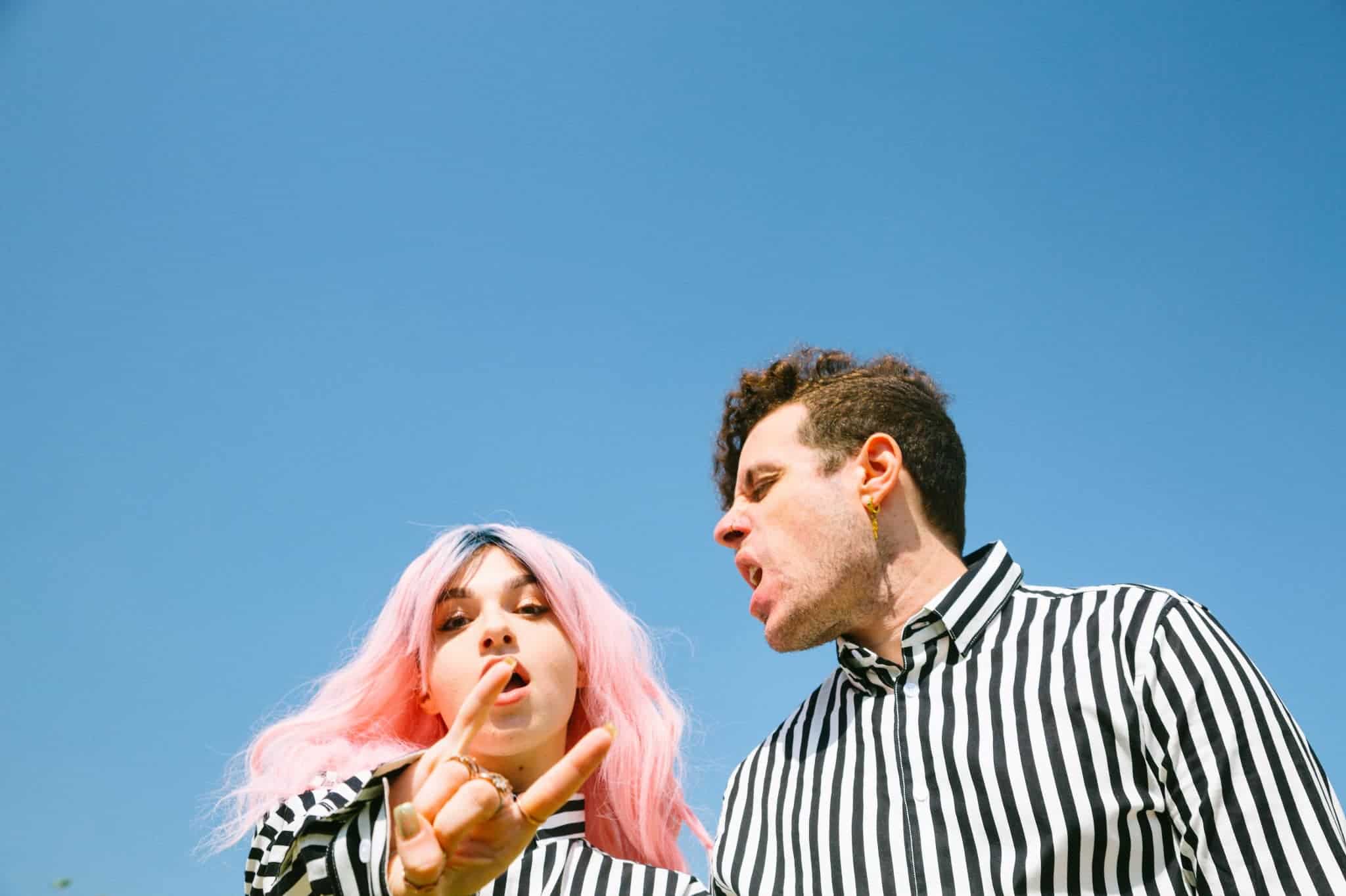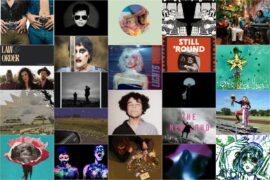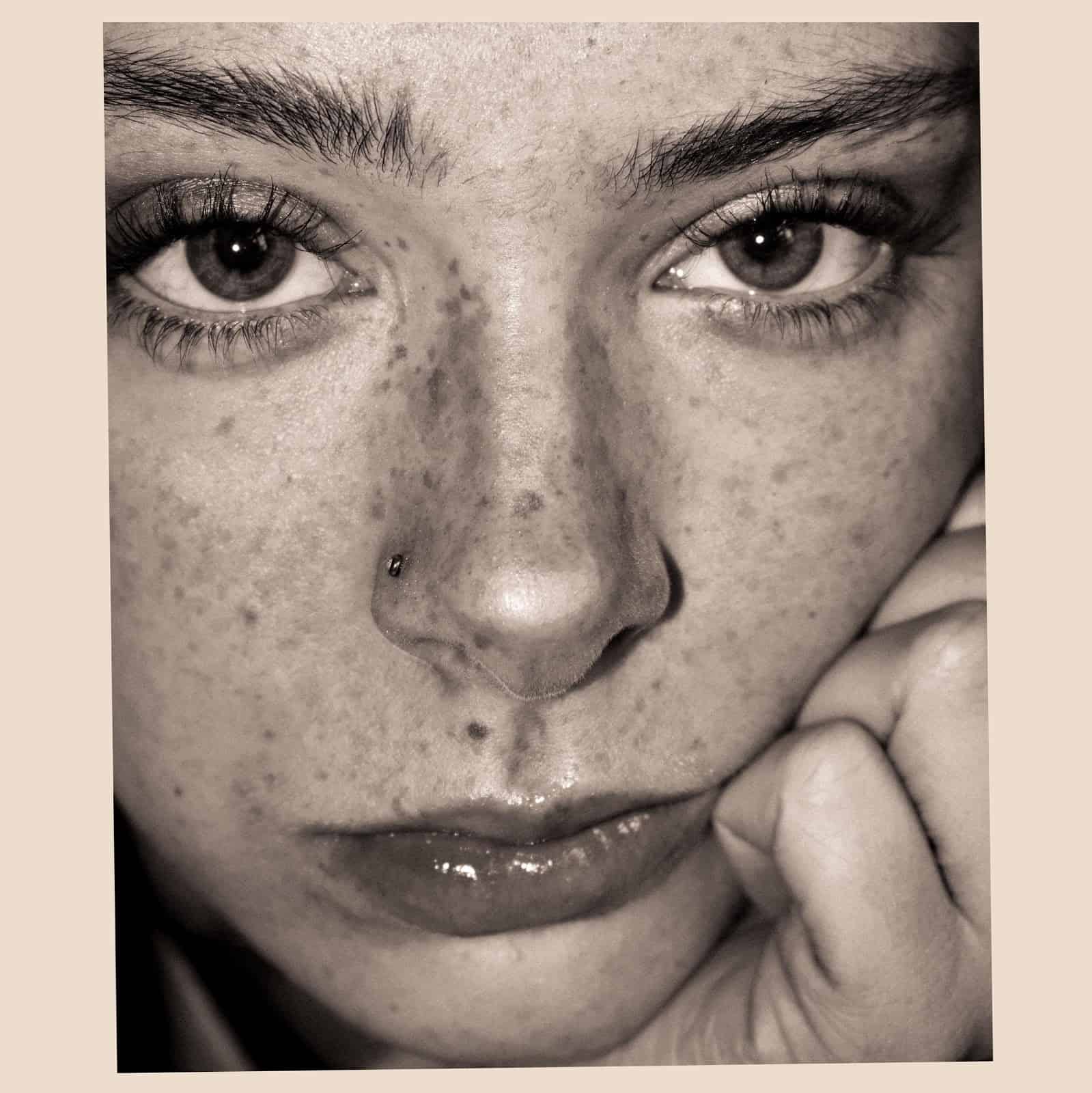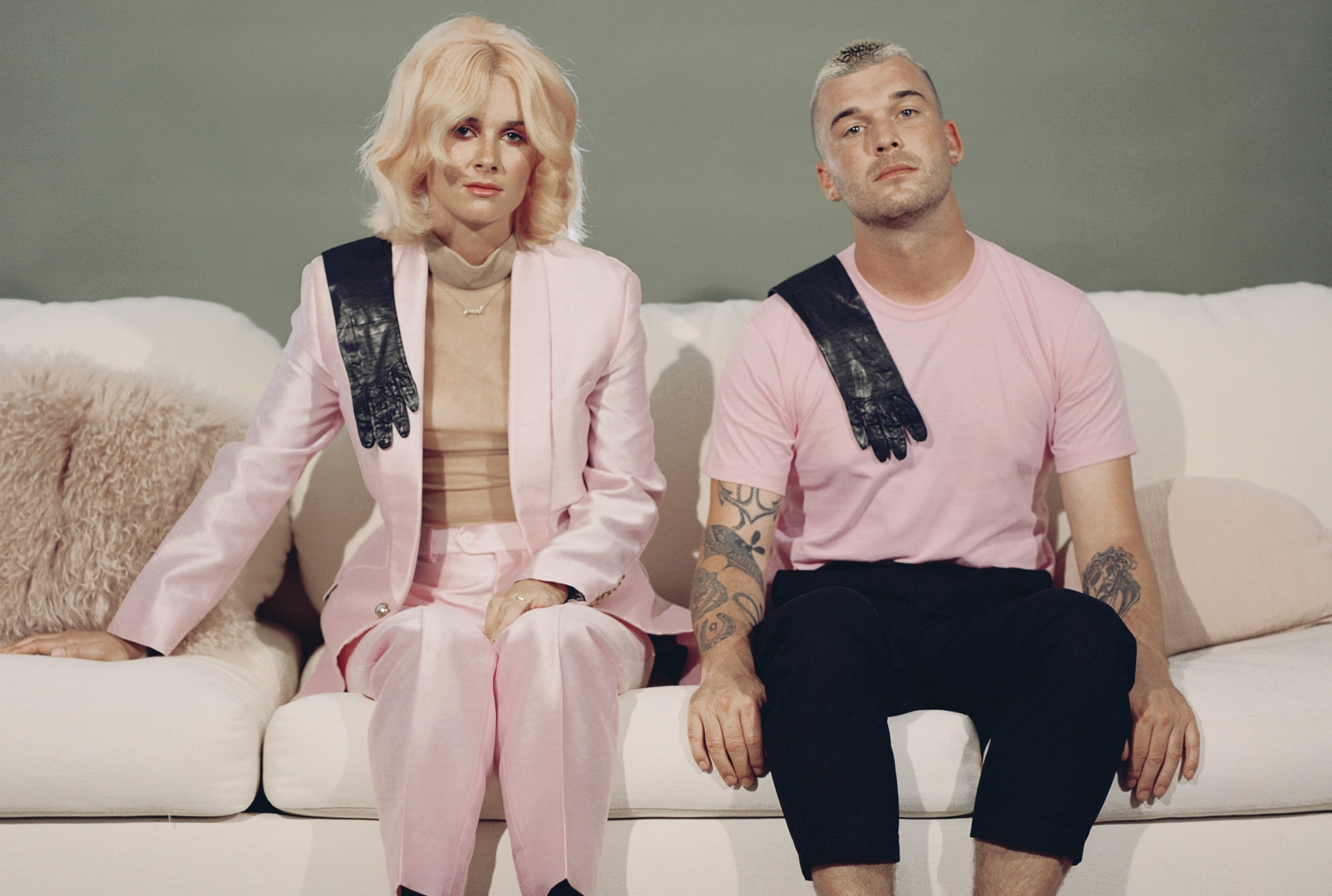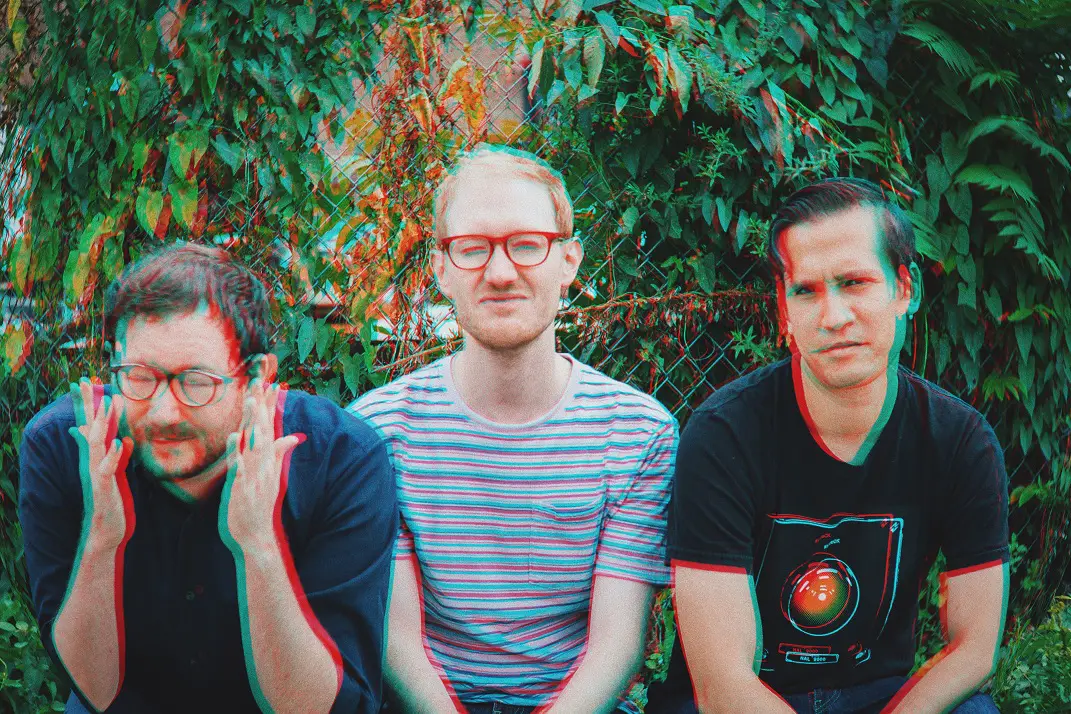A music series for emerging artists and hidden gems, B-Drop Worldwide premieres its second showcase featuring Cuffed Up, sorebae, Cheer Up Club, Jango Flash, & The Rare Occasions!
Just as every country has its hidden gems waiting to be discovered, every artist has their own hidden gems waiting to be heard.
Atwood Magazine is proud to be featuring B-Drop Worldwide, an exciting new music series giving a platform to emerging artists and shining a spotlight on the A-sides, as well as the beloved (but oft-neglected) B-sides. The second of this unique melting pot of music premieres today, with five special performances from the United Kingdom and the United States: Featured here are London-based artists Jango Flash and Sorebae, alongside Los Angeles-based artists Cuffed Up, The Rare Occasions, and Cheer Up Club.
“B-Drop Worldwide came from B-Drop TV, an online music platform supporting emerging artists,” founder Cindi Avnet tells Atwood Magazine. “Prior to the pandemic we were filming twice a month in a studio space, doing a few bands each time. The bands would do two songs – an A-side and a B-side, with a brief interview at the end. The last question we asked the artists would be what’s one of your all-time favorite B-side. When COVID hit, we decided to do continue virtually with Instagram live streams every Monday and Friday doing a similar format.”
“One day I realized I wanted to create a worldwide community that supports emerging artists everywhere. Our plan is to film every 6 to 8 weeks moving from country to country. We will have six artists total performing each time we do the session: Three from the US, and three from the country we have chosen. The format will be similar to regular B-Drop, but it will be in-person sessions. We will also try to support indie labels from other countries by supporting their bands from their respective countries. We started with the UK, and because we think that it came out so well we might spend the summer doing UK sessions just to build up momentum before we move to another country!”
Why B-sides?
“Historically, often B-sides became more popular than the A-sides,” Avnet explains. “At B-Drop we want to encourage artists to have a chance to play one of their songs that is less well known or may have never been recorded. It’s interesting to have them do a current single as well as a B-side. From my understanding most music platforms want to just hear the current single but on our show we enjoy having the point of difference.”
B-Drop Worldwide is a showcase on a mission.
“Going forward, our vision is to bring attention to bands that may not often have opportunities and chances to thrive in this overcrowded music space we are in, Avnet says. “Our focus is to bring attention to undiscovered artists that may have not had the chance to be seen and heard otherwise. My hope is B-Drop listeners will discover new artists that they may never have heard before and add them to their playlist of artists to listen to. Also if someone is already a fan of the artist, then perhaps they will enjoy their B-side if they’ve never heard it before. The main thing for B-Drop is cultivating music discovery from new artists.”
Avnet’s favorite B-side? “God Only Knows” by The Beach Boys, from the band’s unparalleled 1966 album Pet Sounds (the A-side was “Wouldn’t It Be Nice”). Co-producer Bella Elbaum’s go-to B-side? The Beatles’ “Baby You’re A Rich Man” (the A-side was “All You Need Is Love”).
B-Drop Worldwide is all about expanding our musical horizons. Discover Cuffed Up, The Rare Occasions, Cheer Up Club, Jango Flash, and Sorebae in the series’ second episode, and dive deeper into these artists and their B-side picks below!
B-Drop Worldwide is produced by Cindi Avnet, Bella Elbaum, Joseph Calhoun, and UK Producer Joshua Woolf. The Los Angeles performances were shot at Moose Cat Studio with host Lucy La Forge, and the London performances were shot at Laylow with host Karima Francis.
The Rare Occasions

Atwood Magazine: Can you share a little more about the songs you performed and what they mean to you?
The Rare Occasions: “Bolts” and “Origami” are two songs off of our latest record ‘Big Whoop’. Bolts is a fun, fast-paced track that we chose as our “A-Side”, and Origami is a more melancholy song that represents the depth of our catalog, which is why we chose it as our “B-Side” for the session.
Can you dive a little deeper into the B-side(s) you highlighted, and why that music is special to you?
The Rare Occasions: During lockdown we all shifted to one strange hobby or another to pass the time and for me that was skateboarding. It was a huge stress reliever to skate down the street and try to learn new tricks. I became interested in the idea of writing a lighthearted ode to skateboarding, like what “Surfin’ USA” tries to do for surfing. The term “bolts” is used as an adjective to describe a perfectly executed trick. I tried to sprinkle in little bits of skate vernacular like that in the lyrics of the song, which probably makes it a bit incomprehensible.
“Origami” is similar in a way, because the song is about coping with the stress and anxiety of daily life by simply reminding ourselves about the reality of our existence in the outside world. I think especially during this last year we have all found ourselves living in our heads too much and just taking a moment to look around and appreciate the physical world can break that pattern. The chorus goes “I’ll face the night / deep in starlight”, which is perhaps even better expressed with the internet colloquialism “touch grass”. Musically and arrangement-wise, this song is something we’re all really happy with and I think expresses the quirkiness and playfulness of our new record.
What's the significance of a B-side, for you?
The Rare Occasions: I’ve always really enjoyed listening to B-sides. It’s a chance for an artist to try something a little bit outside their wheelhouse, and sometimes they stumble onto something truly great. Some of my favorite tracks throughout the years were B-sides or other cuts not used on albums. I think we talk about it in the session, so I won’t spoil it here, but we each have some eclectic favorites from the bands.
Cuffed Up

Atwood Magazine: Can you share a little more about the songs you performed and what they mean to you?
Cuffed Up: “Canaries” is about going down a path that you know is wrong but you keep going because some form of shame is driving you. You’ve put warnings in place, like the canaries, but ignore them when they alert you of danger. Sometimes we become numb to the burdens we carry -“carrying the weight of stones/with pins to his bones” like the sensation of needles when you cut off circulation. Eventually, we need to come to the realization that “truth is heavier than lies”, that it’s easier to roll over than fight your way out. The rest of the chorus screams “open your chest love, it’s for the best love, don’t settle down, don’t compromise ”, saying in order to dig yourself out, you need to be vulnerable with yourself or else you’re just blindly accepting fate as is. “Mother/Father” is about the parents who project their past insecurities onto their own children. They can be really demanding or overly protective in a lot of toxic ways and the song is basically a loud 4 on the floor warning sign. Human beings are very (very) complex in our own insecurities and unfortunately, the most insecure folks tend to hide behind their influence and authority who selfishly break down the people closest around them. Although in their minds, they think they’re helping them.
Can you dive a little deeper into the B-side(s) you highlighted, and why that music is special to you?
Cuffed Up: Our B-side “Mother/Father” was actually one of the first songs we’ve ever worked on and finished together as a band in early 2019, so it’s a special song for us. The riff/bones were written back in 2018 when Ralph was making some at-home demos, experimenting with that post-punk sound. Once all 4 of us were in a room together working on the song, it really did feel very special because we could tell that it set a tone for what Cuffed Up could sound like.
What's the significance of a B-side, for you?
Cuffed Up: We love how B-sides feel almost standalone in an artist or band’s catalog. There’s usually a special story or meaning behind the songs because it isn’t necessarily revisited all the time, unlike singles that are on repeat the rest of their career. B-sides tend to be reserved for the die hard fans who dig for them and we love that.
Cheer Up Club
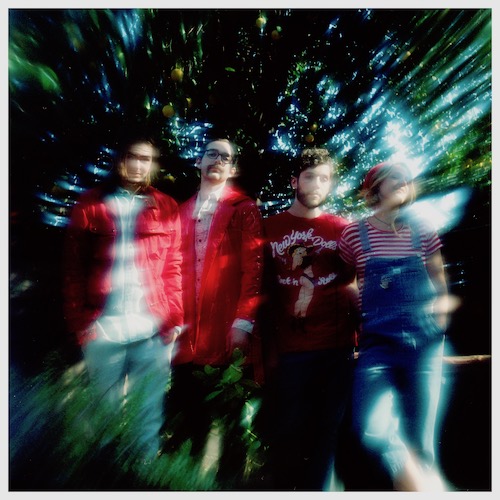
Atwood Magazine: Can you share a little more about the songs you performed and what they mean to you?
Cheer Up Club: “Whiskey Ginger” was the first single from our first record Get Physical, which you should check it out if you haven’t already. It was scrawled out in bits and pieces around San Francisco on a lovebust trip with my girlfriend, and that comes through in the lyrics. No, it’s not 20 miles to get from the MOMA to the Tenderloin, but if you take all the right detours, you can probably get close. Cool little Lou Reed talk-sing bridge – bonus points if you’ve been to The Beat Museum (North Beach)!
“Therapy,” on the other hand, is the last song on our second record (spoilers!) which we’re working on now. It’s fun. It’s a bit of a dark love song about falling in love with your therapist so you keep finding reasons to self-sabotage to perpetuate your crisis so you can see them indefinitely. To be clear though – you don’t need to be in crisis to talk to someone, so make an appointment now (or just DM us @cheerupclub if you don’t have health insurance).
On a deeper level, the “character” in the song is so self-assured that their faults are just a facade, when in reality, they’ve got some deep-seated shit to work through, which is something I (Ethan, singer-dude) and I’m sure many other people can relate to (if only they’d admit it).
Can you dive a little deeper into the B-side(s) you highlighted, and why that music is special to you?
“Why Can’t I Touch It“: I, (Ethan, singer/guitar dude) actually started on Bass, and this was a full-time jam. It’s so simple, but grooves so hard – everything fits together perfectly. Since then, I’ve started praying to the guitar sounds, pacing my life around the drums, and the lyrics turn it into a botched course in Solipsism. Of course, all that’s bullshit – it’s a real cool song and I like it very much. It makes my hips do things and turns my brain off. Is that not enough?
“Baby You’re A Rich Man“: “It’s just fucking great, dude. This song makes me shake my booty and dance. It’s The Beatles, does it need to be so complicated?!” – Chris (Drums)
“Can’t Always Get What You Want“”Because it’s not The Beatles” – Will (Bass)
What's the significance of a B-side, for you?
Cheer Up Club: B-Sides are something that I feel are really missing these days. Spotify is spitting out singles left and right, but albums seem to be optional which is sad. I’m an album person – you write a ton of songs, pick the ones that fit best together – boom, that’s your record. The songs that don’t fit are the bonus – the B-Sides. That doesn’t mean it’s bad – it just didn’t fit. On the flip side (no pun intended), we’ve been approaching singles in a semi-similar fashion. Sounds that we love and adore but wouldn’t do a full album of. It’s a chance to experiment and explore new things while the A-side makes you your money (assuming there’s still money in music these days).
sorebae
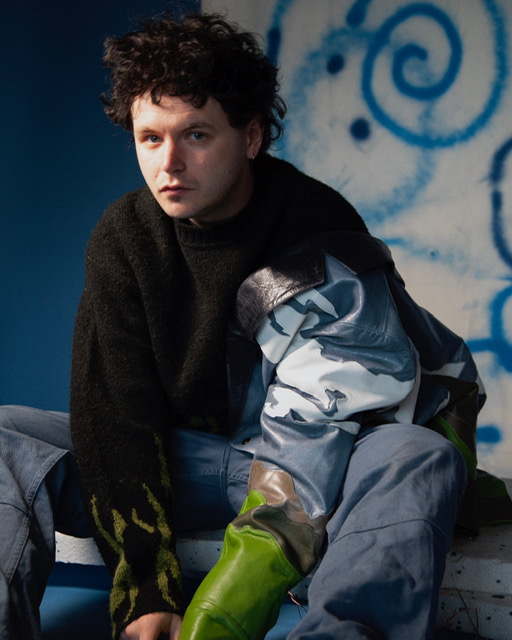
Atwood Magazine: Can you share a little more about the songs you performed and what they mean to you?
sorebae: “Half Cut” is probably the least ironic song I’ve ever written about the power of friendship. And the other’s a BDSM love song addressed to late-stage capitalism and living skint. This live session was the first time we’ve ever been on stage together, so we’re all still working out what that means to us.
Can you dive a little deeper into the B-side(s) you highlighted, and why that music is special to you?
sorebae: I picked The Beatles’ version of A Taste of Honey from their Twist & Shout single. When going spending our pocket money on vinyl in high school me & my friend Liam used to get the bus to St Helens to visit Kaleidoscope Records. He bought that vinyl and even though we saw ourselves as into punk music at the time we both loved how weird & old fashioned a song it was. There’s also the Shelagh Delaney play of the same name about Salford so this song ties a lot of memories together for me.
What's the significance of a B-side, for you?
sorebae: The B-Side to me is an in-joke. It means you know a little more about the artist than the people who heard it on the radio. I’ve always loved that feeling. My grandparents used to run a record stall on Darwen Market and that’s the first time I remember seeing a record, really taking the physicality of a vinyl release for granted. It meant as a teenager I had access to a lot of B-sides I wouldn’t have known about. Two songs for the price of one is so far removed from what we now know!
Jango Flash

Atwood Magazine: Can you share a little more about the songs you performed and what they mean to you?
Jango Flash: “Change Agents” and “My Mercedes” both represent turbulent points in my family’s life. Both of which however are about overcoming the bad and pulling the protagonist through the tunnel to reach the light. “Change Agents” was written at a time where I was reflecting on my brother’s drug and alcohol consumption before his illness and through it until his passing. It was me coming to terms with his terminal diagnosis and remembering his stubborn and ferocious behaviour in the face of adversity. “My Mercedes” was written as a broken conversation between two friends, one of which is my mother who was escaping an oppressive relationship. Her friend would always start every letter off with “Dear My Mercedes,” a name to emphasize the fact that she carries herself through life with unwavering strength and elegance, much like a Mercedes Benz. Both songs are poignant in different ways, but they are written and composed in a way which lifts the listener out of the dark rather than keeping them there to feel it all.”
— — — —

Connect to B-Drop on
Facebook, Twitter, Instagram
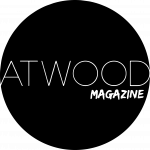
Connect to Atwood Magazine on
Facebook, Twitter, Instagram
Discover new music on Atwood Magazine
? © B-Drop Worldwide



